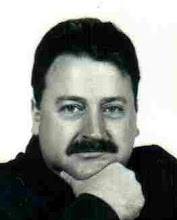An Honest Shovel: The intimate nature of New Zealand society has taught it's citizens to call corruption by other, less troublesome, names. When asked to dig, the responsible agencies almost always set out with a teaspoon - not a spade. Who knows what levels of corruption an honest shovel would now uncover in "the least corrupt nation on earth"?
A GROUP of wealthy ranchers and industrialists importunes
the man most likely to lead their party to the White House. He hears them out
politely, takes a contemplative sip from his glass of whiskey, and replies:
“Boys, I’d like to help. But, like every man, I have my price. If you want me
to run, it’ll cost you a well-watered ranch in prime cattle country.” The party
big-wigs exchange glances and nods. Their spokesman rises from his big leather
chair, extends his hand towards the beaming candidate, and exclaims: “Done!”
Now who would you say this politician was? A Texan, surely?
Lyndon Baines Johnson? George W. Bush? Some corrupt citizen of the Lone Star
State where elections were regularly franchised out to party bosses who, when
it came to vote-rigging, only ever had one question: “Do you want us to count
‘em, or vote ‘em?” (Meaning: Do you want us to stuff the ballot boxes, or
merely round up the required number of bribed and/or intimidated electors?)
Well, to be honest, this story isn’t about Texan – or even
American – politics. I only used words like “ranchers” and “White House” so
that you’d have no difficulty in recognising all the behind-the-scenes
deal-making for what it was: political corruption.
Had I told you from the beginning that we were talking about
New Zealand farmers and businessmen, and that the politician negotiating the
price of his co-operation was the future National Party Prime Minister, Keith
Holyoake, then you would already be objecting: “So what? That’s not corruption.
It’s not illegal to buy somebody a farm!”
I remember my old editor at The Independent Business Weekly, Warren Berryman, shaking his head
in wonderment when, once again, some international outfit declared New Zealand
to be the least corrupt country on Earth. Warren was born in the United States
and had lived what might, euphemistically, be called “a colourful life”.
“This is one of the most corrupt countries I’ve ever lived
in”, he told me. “It’s everywhere you look – but you Kiwis just don’t see it.
New Zealand tops all these surveys not because it’s corruption-free, but
because New Zealanders have become experts at looking at corruption and calling
it something else.”
How much longer, I wonder, is the rest of the world going to
be hoodwinked by Kiwis’ perverse willingness to substitute an ornamental
teaspoon for a spade?
Imagine a foreign corporate investor reading an account of
the New Zealand Government’s management of the process of securing a
world-class convention-centre for its largest city. Can’t you just see his eyes
flicking back to the top of the story to make sure that he’s reading about New
Zealand – and not some dodgy regime in the developing world.
Because, let’s be honest: if we were reading about a
Prime-Minister meeting privately, over dinner, with the operator of the
country’s largest casino; if we learned that his government was seriously
considering changing the gaming laws to the advantage of said casino operator
in return for it stumping-up the cash for said convention-centre; if we discovered
that civil servants were operating outside official procedural guidelines and
that Treasury concerns about this lack of proper process were being ignored;
then wouldn’t the last place we’d think we were reading about be “the world’s
least corrupt nation” – New Zealand?
And hasn’t the Deputy Auditor-General, Phillippa Smith,
proved the late Warren Berryman absolutely correct by first detailing an
extraordinary series of highly irregular activities on the part of New Zealand
politicians and civil servants, only to conclude that she has no “substantive”
issues with the outcome?
And doesn’t it remind you of those movies in which an obese
southern sheriff interposes his sweating bulk between the bloodied bodies lying
face-down in the street and the gathering crowd of townspeople, saying:
“Nothing to see here, folks. Y’all just run along home now. Everything’s under
control.”
Because isn’t that precisely what Prime Minister John Key’s
Mr Fix-it – Steven Joyce – has been telling us to do all week?
And isn’t that because New Zealand is much closer to that
sleepy southern town than we’d like to think.
Ours is an extremely intimate society in which “ordinary”
citizens know (and are known by) all manner of “important” people. In such
close-knit communities it is often unhelpful to rely too literally on the black
letters of the law. When everybody knows where everybody else’s bodies are
buried, setting forth in search of wrong-doing with an ornamental teaspoon
arguably makes more sense than marching off with a spade.
And once the tradition of digging with teaspoons becomes
established the use of a spade becomes even more dangerous. Who knows what
dirty deals, sleazy quid-pro-quos and ghastly miscarriages of justice might be
uncovered if an honest shovel was ever allowed to turn over the topsoil of
“corruption-free” New Zealand?
This essay was
originally published in The Press of
Tuesday, 26 February 2013.










